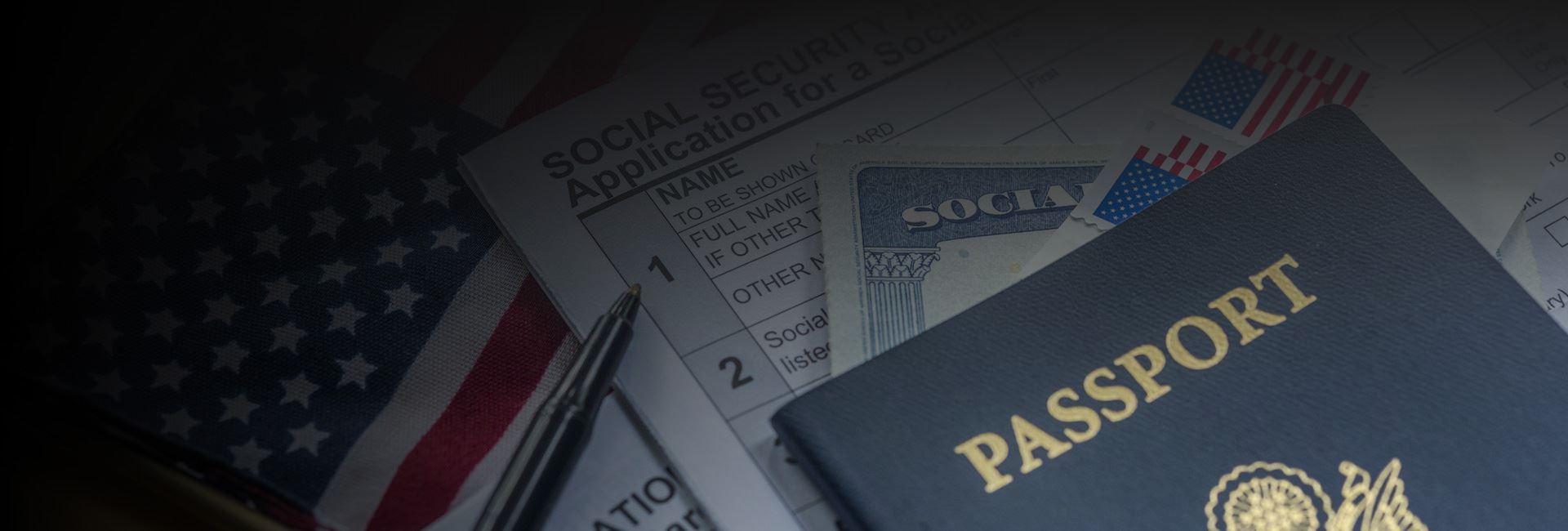
Immigration FAQ
Family Petitions
Question. How could I fix my girlfriend’s papers? She has never entered the U.S. We have been together for 9 months and she is currently 5 months pregnant. I have no criminal history neither does she.
A. You have the option of a fiancé visa petition to bring her to the U.S. to marry here, or a spousal petition wherein you would marry her outside the U.S. You should consult with an experienced immigration attorney who can discuss the pros and cons of each process and assist you with the case. KYA Law routinely handles fiancé visa and spousal visa petitions.
Question. What are the options for my fiancé to come to the US and get married? I’m currently on an F1 visa and my fiancé used to stay in the US on H1B until September 2018. I met her in January 2018 and we love each other so much. Unfortunately, she had to return to India. We are looking into options for getting married in the US. But we are not sure how to proceed, whether she should apply for a visitor visa or come as a student.
A. Neither a B1/B2 or F1 is the appropriate visa for her to use to come here to marry you and remain in the U.S. You will either need to file a fiancé visa petition that allows her to enter the US to marry you (which she must do within 90 days of entry) and then apply for permanent residency or marry her outside the US and file a spousal visa petition. I highly encourage you to engage the services of an immigration attorney who can help you determine the best process for your circumstances, and then help you navigate the system. We will be happy to assist you.
Question. I am sponsoring my husband for a green card and this last year I did not work for two months while I was away in Europe, so I did not meet the minimum of $21k. But this year I am working full time and should have no problem meeting it. I also have $15k in savings. I am wondering if I have to use tax returns or if I can use pay stubs and bank accounts instead.
A. If you are close, you can use assets to try to make up the difference. You can also provide a letter from your employer and current pay stubs to try to show that your current income is sufficient. Otherwise, you will need a joint sponsor. You may want to consult an attorney who may be able to assist, as an affidavit of support issues can become pretty tricky.
Question. How do I petition for my spouse's daughter who lives in Ghana? I filed I-130 and I-485 for my spouse and I filed I-130 for his daughter. How do I go-ahead to file for his daughter green card? I heard something about consular processing.
A. In general, after the I-130 is approved, the case is sent to the NVC for more applications and document submission. Then the case goes to the U.S. consulate in Ghana. This assumes that the child was under 18 at the time you were married and is still under the age of 21. The consulate in Ghana is one of the worst to deal with, so everything must be well supported by documentary evidence.
Question. My girlfriend and I have been together for a few years now. The problem is she is from Spain and comes to the U.S. using a tourist visa. I want her to be able to stay and get her green card. I know a little bit about the Marriage and Finance visa and I would love to learn more. I heard she would come to the U.S for 90 days before we could get married. Are the 90 days mandatory or can we get married sooner?
A. A fiancé visa allows her one entry into the U.S. for the sole purpose of marrying you. You can marry the day she arrives if you wish, but must marry within 90 days of her entry. If not, she must leave the U.S. If you do marry, then she files for adjustment of status (green card).
The other option is to marry her outside the U.S. and file a spousal visa petition. There are pros and cons to each procedure. I suggest consulting with an immigration attorney to discuss the specifics of each process and help you figure out which is best for you. Then I recommend having an attorney handle the entire process for you.
Question. My husband has not received his green card yet and I am a US citizen. We got married after him coming to the U.S. with a K1 visa and filed for adjustment of status. Can I petition for him or does my husband have to wait for his green card?
A. If his son was under 18 when you married, you can file a petition on his behalf. If not, he will have to wait until your husband can petition.
Question. I decided to apply for an immigration visa for my father after the change of political climate towards immigration in mid-2018. However, the I-130 was quickly approved but I do not have an income until I become a resident physician in July 2020. The application is at the NVC stage currently. What should I do?
A. If there is someone who can serve as a joint sponsor, you can continue with the immigrant visa applications now. If not, make sure you make contact with the NVC at least once a year to keep the case open. This will allow you to wait until you are ready to proceed. If you do not stay in touch with the NVC and the case closes, you will have to start all over with the I-130
Question. How can my stepfather get a petition or an immigrant visa, if he cannot be my mother's derivative? I requested my mother and tried to add my stepfather as a derivative, but he cannot be. I cannot file a petition for him because he and my mother got married when I was over 18 years old.
A. Unfortunately, that is correct. There is no way for you to petition on his behalf. Your mother would need to become a permanent resident based on your petition. Then she can file a petition for him.
Question. My son is here on an F1 visa. I applied for him (under 21) in April 2018 via the I-130 Petition for Alien Relative, and I am a Lawful Permanent Resident. At the time when we received the I-797 receipt, it said that the estimated processing time would be 12 months. What do you think? How long should it take?
A. That processing time is just for the I-130. Even once it is approved, he will still have to wait for a visa number to become available. It usually takes 2-3 years from the filing of an I-130 in the F-2A category before a visa number is available. He is not eligible to adjust status or apply for an immigrant visa until that visa number is available. In the interim, he must maintain his F1 status or leave the U.S.
Question. Can my parents travel on a B1/B2 visa while the I-130 application is pending? I am a US citizen and looking to file a green card petition for my parents in India. They will be doing Consular processing. Can they travel back and forth to the USA on a visitor’s visa if I-130 application is pending in the USA? They are in the USA for the last 4 months. Can they file an adjustment of status if we decide not to go for consular processing and file the I-130 along with I- 485 application from the USA? They have been in the USA for quite a few months and we have waited an ample amount of time now.
A. As long as it was not their intention when they entered on the visitor visa, yes, you could file a one-step I-130/I-485 for each of them. If they leave and process through the consulate, legally they are allowed to visit while the petition is pending, but as a practical matter, CBP may not let them in, thinking that they are tired of waiting and just trying to use the B1/B2 as a way to circumvent the process. What they cannot do is leave and re-enter with a B1/B2 to stay and apply for adjustment of status.
Question. I’m a green card holder and my wife is in the Philippines and already filed my petition to her to get her here. How long will it take before she can come to the U.S.?
A. You first must wait for the I-130 to get approved (1-2 years). Then you must wait for a visa number to become available in the F-2A category. At that point, she can proceed with the next steps of submitting immigrant visa applications and going for her interview. If you are eligible to naturalize, that could speed up the process. You would still have to wait for the I-130 approval, but then you would be able to immediately proceed with immigrant visa processing as opposed to having to wait for a visa number.
Question. Can a Permanent Resident apply for a K1 Visa for their fiancée? I have been a permanent resident for 30 years and am getting married next month.
A. No. You must be a US citizen to file for a fiancé. Your options are either to naturalize and then start the fiancé visa process or marry first and file for a spousal visa.
Question. I am a U.S citizen; and plan to marry a young woman who can travel to the U.S with her valid B-1 B-2 Visa. We would like to get married in the U.S. to avoid the long processing time for a K-3 Visa. Would her B-1 B-2 present a problem-- owing to being a single purpose Visa-- for her stay in the U.S? What if she overstays her I-94 time before the processing is completed?
A. Do not do that. A B1/B2 is a non-immigrant visa. It is considered an improper/fraudulent use of a B1/B2 to use it to enter the U.S. to stay and file for permanent residency. It is fine for her to enter on the B1/B2, marry, and immediately file an I-130 petition. Then should she need to leave at the end of her authorized stay, wait for the I-130 to be approved, and then process through the consulate? She would then re-enter the U.S. with an immigrant visa (meaning that she would be a permanent residence upon her entry to the U.S.
Question. I am a young 70-year-old woman U.S. citizen. My fiancé is a very wise 25-year-old living in Ghana. We started as friends on FB four years ago. After Face Timing and texting several times a day and learning about each other and sharing hundreds of photos we have fallen deeply in love. Both families are excited about the relationship and can’t wait for the marriage to take place. Because of the vast difference in age, what are our chances of getting a K-1 visa?
A. As long as you can prove that you have a real relationship, age is not technically an issue. It will, however, cause there to be greater scrutiny given to the case. I've seen these age differences quite often and it is usually not a problem. You did not mention meeting in person, and that is a requirement for a fiancé visa. I will tell you that the consulate in Ghana is notoriously difficult when it comes to fiancé visas. Another option is for you to travel there to marry and then file a spousal visa petition. Either way, I highly encourage you to hire an experienced immigration attorney to assist you with this matter. KYA routinely deals with spousal and fiancé visas involving large age differences.
Question. I have a Nigerian fiancé residing and seeking asylum in the United Kingdom at the moment. I am a U.S. citizen. I want to know if I can marry her in the U.K. and bring her with her two children from a previous marriage to the U.S. as a wife without her going back to Nigeria because she doesn't want to go back to Nigeria.
A. Yes, you can marry her and file a spousal visa petition. If her children are under 18 at the time you marry, you can also file petitions on their behalf. It's a two-step process that will likely take about 1 1/2 to 2 years.
Question. Can I still fill the 1 715 form even when the conditional residency card expires? My husband is an American citizen but we did not receive any notification to remove the condition on my residency permit. Now we just found out that we need to remove the condition but the card is already expired. What should we do?
A. You should still file the I-751 as quickly as possible. You will need to explain why the filing is untimely. It is up to USCIS as to whether to excuse the late filing and still process the application.
Question. My current income for 2018 was about 25k and I am the sponsor for my husband. In previous years, I made less than 20k. Am I be able to sponsor my husband if we apply for the green card in 2019?
A: Generally you must provide your income level for the past 3 years, current income, and your most recent tax return and W-2. If the amounts are pretty consistently at the required level of income, you probably will not have to provide anything else. If your previous income was below the required limit but your current income meets the requisite level, you may be asked to provide more information documenting your current level (employment letter, pay stubs, etc.)
Regardless of income, you are still the petitioner and thus, a sponsor. If your income is not sufficient, you may need to find a joint sponsor who is willing to provide his/her financial info and sign stating that your husband would not be dependent on the government. This can be anyone who is a U.S. citizen or permanent resident who lives in the U.S. This does not have to be a family member.
Question. We just found out my husband has an order for removal could we still apply for his green card? He came here illegally in 2013 was picked up by ICE in Texas and incarcerated he was released and we just found out he has an order for removal from 2014.
A: If your husband only entered or attempted to enter without a visa once, was then ordered removed but never actually left the U.S. he may be eligible for a provisional I-212 waiver (which would waive the bar for the prior removal order) and could then apply for an I-601A provisional waiver for unlawful status.
If you are a USC or LPR, and he fits the parameters above, there is a potential process that would allow him to obtain legal status without going back to court. It would be a rather lengthy, multi-step process, but KYA law does handle this type of case routinely.
Immigration Court/Removal Defense/Prior Removal Orders
Question. I applied for asylum defensively and it was denied by the judge. I reserved the right to appeal. I would like to know if I could apply for cancellation of removal with my step-child(disabled) who is the qualifying relative. Will the judge accept my EOIR 42B while the asylum appeal is pending?
A. You need to retain an attorney. It is highly unlikely that the judge will allow cancellation of removal case at this stage. You are usually required to file all motions for relief at the outset and are not allowed to try one and if that doesn't work, try another.
Question. Can I file an I-130 petition to a spouse who has a deportation order from 2006? I want to file the petition on my own because we cannot afford an attorney at this time.
A. This is not the type of case you want to even consider handling without an attorney. You need a full consultation to determine whether your spouse could even use an I-130 if it were approved. Some waivers would be needed and the specific process depends upon many factors. Most immigration attorneys offer payment plans or financing options and it is well worth the money. Trying to file by yourself in the situation you describe can make a bad situation much worse.
Question. I was just released from ICE custody and issued a notice to appear. What happens now?
A. The notice to appear (NTA) should indicate a date and time for you to appear in immigration court. Your first step should be to hire an attorney to represent you. The first hearing is called a master calendar hearing. At this hearing, the judge will go over the NTA, verify your information, and ask if you will be requesting any forms of relief (i.e. anything you can apply for to allow you to stay in the U.S.) If you indicate that you will be applying, you will usually be given a continuance and ordered to return on another date to file the application or report on an application filed with USCIS. If you apply that will be heard by the judge, such as cancellation of removal or asylum, you will be given an individual hearing date. That’s the day you will testify, call witnesses, to try to convince the judge to allow you to remain in the U.S.
Question. I had my first immigration court appearance today and heard people talking about a voluntary departure. What is that?
A. Voluntary departure is a request made by the foreign national asking to be allowed to leave the U.S. on his/her own rather than being ordered removed. This is usually requested if there is no petition or application to file that would possibly result in the applicant being able to remain in the U.S. If granted, the judge will give you a certain date (usually 120 days later) by which you must leave the U.S. There are penalties for failing to comply with a grant of voluntary departure, so it is not a good idea to ask the judge for it unless you really intend to leave.
Question. What is a cancellation of removal?
A. Cancellation of removal is a form of relief that can be requested is you are in immigration court proceedings. For someone who is not a permanent resident, the requirements are that you have been in the U.S. at least 10 years, have had good moral character for the past 10 years, has never been convicted of certain disqualifying crimes, and can show “exceptional and extremely unusual” hardship to a qualifying relative (U.S. citizen or LPR parent, spouse, or child). This showing of hardship is not an easy task and most cancellation applications are denied for failure to make this showing. If successful in a cancellation of removal case, you will be granted a green card.
Naturalization
Question. I have a marriage-based green card. We're getting divorced after almost 6 years of marriage. I will be applying for naturalization based on being a permanent resident for 5 years. Does it mean, I will have to provide proof of bona fide marriage again?
A. As long as you are applying based on 5 years of permanent residency rather than 3, you do not have to show that you are still married to and living with your spouse. While the officer is free to review the permanent residency application to make sure everything was processed correctly, you do not have to provide continued proof that you had a real marriage.
Question. What is considered a good moral character, when it comes to obtaining USA citizenship?
A. Good moral character for purposes of immigration encompasses a wide range of things including criminal record, paying child support, filing and paying taxes, etc. Criminal issues are the most common cause for a finding of lack of GMC. Before applying for naturalization, consult with an experienced immigration attorney who can analyze these issues and advise whether to apply now or wait.
Question. My mother received her green card in July 2012 and didn’t travel outside the US for more than 6 months until August 2013. She stayed abroad from August 2013-January 25th 2015 for health reasons. After she landed in the US in January 2015, she has maintained a continuous residency in the same address in the US and has also spent more than 30 months in the US and all her trips outside were less than 4 months per year since 2015. Is she eligible to naturalize under the 4 year and a day rule?
A. Yes. Once she broke her continuous physical presence by being out of the U.S. for more than 6 months but less than one year, she falls under the 4 years and 1-day provision. She has to be in the U.S. for 4 years and 1 day since she arrived back in the U.S. from the trip that broke the continuous presence. Based on the information you provided, she is fine to apply on 1-26-19
Question. My wife and I became permanent residents based on her petition for asylum 5 years ago. If we divorce how it would affect my permanent residency, and also the option to apply for citizenship? I applied for citizenship about half a year ago.
A. Since you already have permanent residency, that is not a problem. It would also have no impact at all on your naturalization application.
Question. My wife has her Green Card for 3 and a half years. I just became a US Citizen on December 2018. Does she have to wait for 5 years to apply for naturalization? Or is she eligible to apply now?
A. She must wait. To qualify for naturalization early (3 years instead of 5) she must have been living with her US citizen spouse for the last 3 years. You would have to have been a US citizen that entire time. Once she gets to 4 years and 9 months, assuming she meets all other requirements, she can submit the naturalization application.
Asylum
Question. After obtaining a withholding of removal can we open our case again in seeking asylum status? I have been granted withholding of removal recently by the immigration judge. The judgment came in between the court process before I finished with my story. As I was not much aware of the immigration law and the current immigration situation here, I did not have any other option. But later only I realized that withholding of removal is so complicated and with many restrictions too. I have two kids born here age 12 and 10. Can I reopen my case again or how can I adjust my status for a PR?
A. No, you cannot reopen to seek asylum, as that has already been decided. Withholding of removal is only awarded if the judge found you did not qualify for asylum, usually because the application was filed too late. If you ever have some other basis for becoming a permanent resident, such as an application from a U.S. citizen spouse or child, then it may be possible to reopen the case at that time. That is a fairly involved situation, so you would want to hire an experienced immigration lawyer.
Question. How do I apply for asylum if I haven’t been referred to immigration court?
A. You may file an affirmative application with USCIS within one year of your entry into the U.S. It will likely take several years, but eventually you will be scheduled for an interview with an asylum officer. The officer can either approve the case or refer it to the immigration court. If the case is referred to the court, you will have a second opportunity to present your case before the judge.
Question. I’m afraid to return to my country. Do I have a good asylum case?
A. Fear of returning home is not enough for a grant of asylum. You must prove that you have suffered past persecution and are likely to suffer future persecution if you return. You must also show that the treatment you endured was due to race, religion, political opinion, ethnicity, or membership in a recognized social group.
U-Visas
Question. I applied for a U-visa in October 2015. I have a U.S citizen child who has turned 21 but can’t apply for permanent residency because I entered without a visa. Once my U-visa is approved, will I be able to apply for permanent residency through my U.S citizen child since all of the criteria will be met for Form I-485; illegal entry will be forgiven by I-192, Application for Advance Permission to Enter as a Nonimmigrant that was part of my visa petition?
A. No. The I-192 only waives those issues for purposes of the U-visa and adjustment of status based on U-visa status. You will need to be U-visa holders for 3 years and then apply for adjustment of status. Then the unlawful entry/unlawful presence/working without authorization, etc.; anything waived on the I-192 does not apply. You do not get to take the U-visa waiver and apply it to adjustment of status through other means (family petition, etc.)
Question. How long does it take to get a U-visa?
A. U-visa processing times are currently about 2 years. Even when the petition is provisionally approved, there’s still a wait because there are only 10,000 U-visas available each year. So after approval, applicants are placed on a waiting list for a number to become available. While on the waiting list, you would have deferred action status which would entitle you to temporary employment authorization.
Question. What is the process/requirements for obtaining a U-visa?
A. First, you have to be the victim of a qualifying crime (such as domestic violence, sexual assault, felonious assault, etc.). You must show that you have suffered mental and/or physical effects from the crime and that you have cooperated with law enforcement in the investigation. Before actually filing a U-visa petition with USCIS, you must obtain law enforcement certification, a form signed by the police department or district attorney who handled the case.

Whether you have questions or you're ready to get started, our legal team is ready to help. Complete our form below or call us at (704) 870-0340.
Other Non-immigrant Visas
Question. I already traveled to the US last January. My Dad filed an I-130 last June. Can I still enter the US? My Dad filed I-130 last June and I am planning to visit them again this April for a yearly visit. Will CBP refuse my entry?
A. There's no way to predict. Legally, there's nothing to prevent entry but it is at the discretion of the particular officer you are dealing with. Just make sure you disclose the I-130 to the officer if asked.
Question. I have a valid B1/B2 visa. I went to the US on an F1 visa, which expired as my course is over. Can I now enter the US on a B1/B2 visa? The 10-year B1/B2 visa was issued in 2010. The F1 visa was issued in 2015. Does the visitor visa get canceled when F1 is given?
A. Receiving F1 does not invalidate the existing B1/B2 visa. If you complied with all the terms of the F1 and have not had any other issues that might make you inadmissible, there's no reason you cannot use your B1/B2 now.
Question. I am a US citizen and I applied for the green card for my parents, however, they have a valid visa and they always come and visit. would it cause any issues or delays if they come to visit through the processing of their applications?
A. Legally there is no problem with them entering on a visitor visa, staying a short period, leaving at the end of their authorized stay, and continuing their immigrant visa process through the consulate. As a practical matter, their entry is at the discretion of the individual CBP officer who is interviewing them at the border. If asked, they must disclose that the immigrant visa process is underway. If the officer does not believe that they will leave and still process through the consulate but are trying to use the visitor visa as a way to circumvent the process, he/she will not let them in. If that happens, it will not impact their immigrant visa process, but they could just have the expense of a trip and then not be allowed in.
Question. How can I have a friend of mine whom I have known for several years, is currently unemployed, obtain a tourist visa? I have a friend who I have known for many years residing in Morocco. I have invited her to visit me, but she is currently unemployed. I can guarantee that she is not looking to migrate here. Just wanting to visit me. I can provide all that is necessary to ensure her temporary visit. What are the possibilities?
A. She will need to apply for the visa at a U.S. embassy or consulate. There's no requirement that she be employed, but she must show sufficient ties to Morocco to convince the consular officer that she intends to return. That can include family ties, ownership of property, etc. The lack of employment does make it more difficult. She also has to show that she can afford the trip here. If she would be staying with you and would not have the expense of a hotel, meals, etc. you can send her a letter stating that for her to include with her application.

Real Testimonials, Real Cases
-
"You are an essential part of this great change in my life."Manuel P.
-
"I feel like I can trust them and I would definitely go to them again if i needed their help."R.R.
-
"I would strongly recommend this firm to anyone needing immigration services."Anonymous








